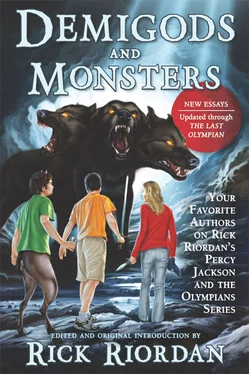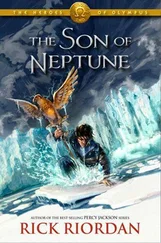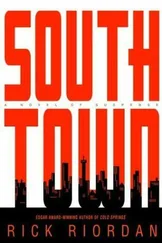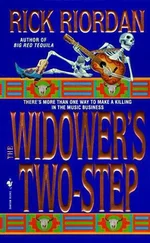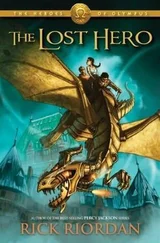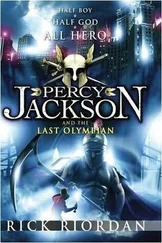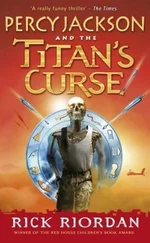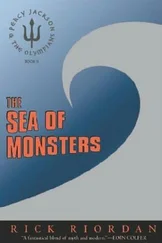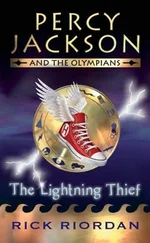Certainly this is Percy Jackson’s take on Mr. D when Percy first arrives at Camp Half-Blood. But first and even fifth impressions don’t tell the whole story when dealing with the Greek gods, who are complex deities. Most of them are multitaskers. Dionysus is not only god of wine and the vine but also the god of fertility, who rules all growing things. (You see this side of Mr. D in Camp Half-Blood’s strawberry fields, which grow so effortlessly and fruitfully that the camp is able to pay all its bills by selling its strawberries to New York restaurants.) He’s also the god of madness, revelry, and theater, as well as the god of joy and divine ecstasy. In the series Riordan describes some of these facets and hints at others. How much of Mr. D, I found myself wondering, was actually part of what the Greeks believed about Dionysus? And what do the stories featuring Dionysus tell us not only about Mr. D but also about Camp Half-Blood?
Percy is not impressed when he’s first introduced to the camp director. Mr. D is short, pudgy, and tends to dress in either loud Hawaiian shirts or tacky running suits featuring tiger or leopard prints. Thanks to Smelly Gabe, his mother’s repulsive husband, Percy immediately knows that Mr. D has a serious acquaintance with alcohol. He looks like a middle-aged drunk going rapidly to seed. What Percy doesn’t immediately pick up on is that he’s facing a god. He doesn’t understand why Grover seems so frightened of Mr. D—until Mr. D allows him a glimpse of his true nature:
He turned to look at me straight on, and I saw a kind of purplish fire in his eyes. . . . I saw visions of grape vines [sic] choking unbelievers to death, drunken warriors insane with battle lust, sailors screaming as their hands turned to flippers, their faces elongating into dolphin snouts. I knew that if I pushed him . . . [he] would plant a disease in my brain that would leave me wearing a straitjacket in a rubber room for the rest of my life.
This is a very accurate description of some of Dionysus’ favorite methods for punishing those who’ve angered him. These include trapping the poor mortals with suddenly sprouting grape and ivy vines, turning them into animals, and driving them completely mad. The Greek stories of Dionysus often depict a frighteningly cruel, vengeful god, yet the images of him almost always show either a beautiful youth surrounded by grapevines or a handsome man with curling, black hair and a luxurious beard. In fact, this image is so consistent that Dionysus is remarkably easy to identify on the vases and urns that have survived from Ancient Greece. The classic Dionysus looks nothing like Riordan’s pudgy, bleary Mr. D. I think there may be a couple of reasons that Riordan’s version of Dionysus is so unattractive. The first goes back to the myths. Like his father Zeus, Dionysus was a master of disguise and often appeared to mortals in other forms. He was known to show up as a ram, a lion, or even a young girl; he was easy to underestimate. I also suspect his incarnation as Mr. D is a warning of sorts on Riordan’s part; no one meeting that unappealing little man could possibly imagine that drinking is a good idea.
You might think that the god of joy and revels would at least guarantee a good time at camp. But no. Beyond his slovenly appearance, Mr. D’s also got an attitude problem. He’s snarky and sullen and contemptuous of both humans and half-bloods. Though he obviously knows the campers’ true names, he makes a point of pretending he can’t remember them. One of the running jokes of the series is Mr. D referring to Percy as Peter Johnson. Chiron explains that Mr. D is unhappy because he “hates his job.” Zeus, it turns out, is the one who ordered Dionysus to run Camp Half-Blood, as a punishment for chasing an off-limits nymph. Not only is Dionysus essentially grounded on Earth for a hundred years—though his sentence is halved in The Last Olympian as a reward for his bravery—but he’s forbidden to drink his beloved wine. His mission is to keep the young heroes safe. And he’s not happy about any of it.
On the surface, choosing Mr. D to run the camp is so ridiculous, it’s comic. It may even be Riordan’s sly acknowledgment of the fact that sometimes the adults who are put in charge of kids are the most inappropriate for the job. Nearly everyone has had teachers who range from inept to damaging to occasionally downright scary. Mr. D seems to be all of those rolled into one.
Percy takes an instant dislike to the whiny camp director, and you can hardly blame him. Even though Mr. D is supposed to be keeping the half-gods safe, he doesn’t seem to care about any of them and he certainly doesn’t bother to help or train them. All of that boring detail he leaves to the centaur Chiron. In the third book, The Titan’s Curse , Mr. D even confesses that he doesn’t like heroes. He married Ariadne after the hero Theseus abandoned her, and he’s held a grudge against heroes ever since. He considers heroes selfish ingrates who use and betray others. To Percy (and yours truly), Mr. D’s description of the heroes sounds more like a description of most of the gods. What Riordan doesn’t tell us, though, is that Dionysus also had a bit of history with the original Perseus, the hero who defeated the Gorgons and Medusa. According to Robert Graves’ The Greek Myths , Perseus fought Dionysus when the wine god came to Argos, killing many of his followers. Dionysus retaliated by driving the women of Argos mad, to the point that they began to eat their own children. Perseus finally had the good sense to appease the god by building him a great temple. So in addition to not liking heroes, Dionysus might simply dislike Percy because of his name.
Moody and difficult as he is, Mr. D is the first god whom Percy confronts directly, and I can’t help thinking that’s significant. Mr. D defies expectations. He’s not beautiful or even likeable. He’s the embodiment of divine indifference—a god who barely notices that mortals exist. Percy meets him at a point when he, Percy, doesn’t believe in gods, and yet there’s Mr. D, undeniably real and scary. The wine god is irrefutable evidence of the new truths that Percy must accept: that not only are the Greek gods real and still messing with mortals, but that one of them is his father. Shortly after meeting Mr. D, a confused Percy asks Chiron:
“Who . . . who am I?” . . .
“Who are you?” [Chiron] mused. “Well, that’s the question we all want answered, isn’t it?”
It is indeed. The gods want to know because they’ve got a prophecy to contend with, and Percy needs to know because what he discovers at Camp Half-Blood is the key to his identity. That question is really the one that Percy has come to Camp Half-Blood to answer. And the more I look at the myths, the more I believe that of all the gods, Dionysus is the perfect choice to preside over the place where questions like Percy’s get resolved.
What Dionysus Did Before He Ran Camp Half-Blood
To really understand what Riordan does with Dionysus, it helps to look at the myths about the wine god. The most popular version of his story starts with his mother, Semele, who was not a goddess but a princess, the daughter of Cadmus, King of Thebes. Zeus fell in love with the young princess and swore by the River Styx that he would do anything she asked. But falling in love with Zeus never works out well for mortals. When Hera, Zeus’ wife, found out about the romance, she disguised herself as an old woman and persuaded the princess to ask Zeus to prove his love by showing himself to her as he showed himself to Hera, in his undisguised divine form. Zeus, knowing that no mortal could survive such a sight, begged the girl to ask for something else. Semele, already six months pregnant and wanting to know the truth about her child’s father, refused. Bound by his own oath, Zeus showed himself in his true form, an immense, glorious vision blazing with thunder and lightning. I suspect this was the equivalent of looking at a nuclear blast up close. Semele was by some accounts frightened to death; by others, she was incinerated on the spot. What nearly all versions of the myth agree on is that in the moment before she died, the god managed to rescue the child she was carrying. Zeus hid the unborn child by sewing him into his own thigh and only undid the stitches when Dionysus was ready to be born.
Читать дальше
